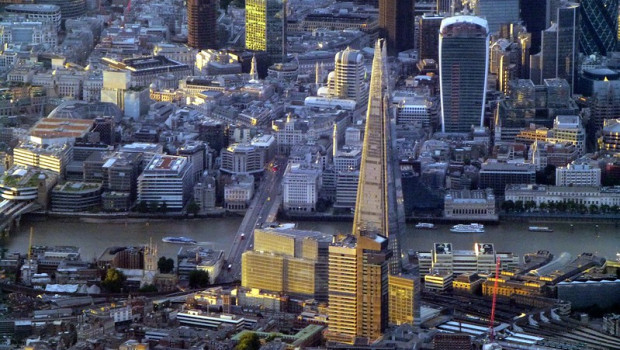UK narrowly avoids technical recession

The UK has narrowly avoided recession, official data showed on Friday, after the economy stagnated in the last quarter of 2022.
According to the Office for National Statistics, GDP fell 0.5% in December, below forecasts for a 0.3% decline and following growth of 0.1% in November and 0.55% in October. December’s print was dragged down by a 0.8% decline in the services sector, which recorded falls in health, education, transport and storage, arts and entertainment.
However, it was not enough to push the quarterly data into negative territory, and GDP was 0.0% in the three months to December, following a decline of 0.2% in November.
The figure was in line with consensus although it was below the Monetary Policy Committee’s own forecast, for growth of 0.1%.
The definition of a recession is two consecutive quarters of contraction.
Sophie Lund-Yates, lead equity analyst at Hargreaves Lansdown, said: "While the absence of an official label will be seen as a victory, there’s an argument to say the can has simply been kicked further down the road. The ramifications for consumers are also tough: around 7m households are still expected to struggle to pay energy and food bills, technical recession or not."
Samuel Tombs, chief UK economist at Pantheon Macroeconomics, said: “The UK still is the only G7 country in which GDP has not recovered fully yet to its pre-Covid fourth quarter 2019 level. Indeed, GDP still was 0.8% lower than three years ago in the UK, whereas it was 5.1% higher in the US [and] 0.1% [higher] in Germany.
“We continue to expect GDP to decline by almost 1% between the fourth quarter and second quarter of 2023, in response to the simultaneous tightening of both monetary and fiscal policy.”
Ben Jones, lead economist at the CBI, said: “We may have avoided a technical recession late last year, but we probably won’t avoid one this year. While we expect that the downturn will be shallow, if we act now, we can make the recession even shorter than predicted. All eyes are on the chancellor’s March budget.”
Laura Suter, head of personal finance at AJ Bell, said: “[December] should have been a buoyant month for the economy, with people going out to spend on Christmas presents, having festive catch-ups and watching the tail end of the football, boosting pub sales. But the cost of living crisis curtailed much of our fun.
"The government will pounce on these figures as an example of why the IMF and other economists’ predictions of UK economic doom are too downbeat. And perhaps more worryingly for the UK public, the bank of England may well see this as a sign that they can go higher and harder with rate rises at their next meeting.”
Chancellor Jeremy Hunt said: “There is underlying resilience in the UK economy, but we’re not out of the woods yet. Inflation is still much too high.”